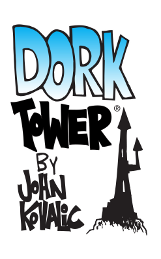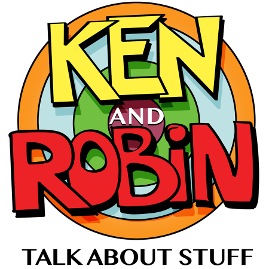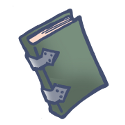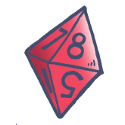Episode 43: In a Non-Necromantic Context
June 14th, 2013 | Robin
 This week’s Travel Advisory takes us to unfamiliar territory—not just the capital of Robin’s beloved Canada, but the On Words Conference held by the Writers’ Union of Canada. Come for compare/contrast between traditional and gaming publishing, stay for the Ottawa facts.
This week’s Travel Advisory takes us to unfamiliar territory—not just the capital of Robin’s beloved Canada, but the On Words Conference held by the Writers’ Union of Canada. Come for compare/contrast between traditional and gaming publishing, stay for the Ottawa facts.
We bid a wistful Book Hut farewell to Jack Vance, the titan of SF and fantasy literature who inspired certain key concepts of roleplaying, not to mention the output of our sponsor Pelgrane Press—so much so that it is named after a Vancian creature.
In the Gaming Hut we list techniques for running successful defensive scenarios. Protecting your base needn’t lead to turtling all the way down.
Finally, a very special Among My Many Hats takes you inside the process of The Nazi Occult, Ken’s new history-bending work for the Osprey Adventures line. This serves as the prelude for a multi-part series on that very subject, which we’ll kick off next week!
Podcast: Play in new window | Download















Usually an episode drops in the wee hours on an Australian morning. Happy to see it up before the witching hour!
I have a special place in my heart for Scythians 700-300 B.C. (which was cribbed wholeheartly for my world’s fantasy horse archers)
With regard to over-planning (which isn’t only a problem with defensive games; consider how painstakingly some groups will prepare for an assault): I’ve generally found time pressure is a good tactic. I also wrote a Pyramid article detailing an abstracted preparation system, so I think my anti-endless-planning credentials are up-to-date. But I’d argue that it’s well worth reading the mood of the group: if they do in fact enjoy the minutiae of preparation, I don’t think it’s my place as GM to tell them that they’re having the wrong kind of fun.
Ken messes up the end titles by mispronouncing “sponserrs”.
Looking forward to hearing the upcoming segments on the Nazi occult; and, indeed, reading Ken’s Osprey book on the subject.
In the present discussion, Ken mentions a few times that unglamorous but nonetheless necessary side of writing craft: research. However, all of Ken’s references are to “googling” (or “Googling”?). One gets the impression that a modern professional writer need not leave the house, anymore. Have websearching and Google Books wholly replaced the time-honoured writerly tradition of lingering in dusty gothic-windowed libraries, perusing actual paper books?
Ken mentions using JSTOR and finding academic journal articles, so I’m sure there’s plenty of dead-tree research reflected in the book as well. I too look forward to reading it soon.
While I agree that there is no credible evidence Hitler was in any sense a magician or occultist, I think his belief in his own destiny and predictive ability may have had at least one significant impact on the war: in _Mein Kampf_, written in 1924 while he was in prison, Hitler stated that when the final showdown with the Global Jewish Menace came, the Japanese would be fighting on his side.
At the time, this was an utterly nutty idea, since Japan was an ally of the British. But when Japan attacked the USA, Hitler unhesitatingly declared war on the Americans even though he had no treaty obligation to do so. His prediction had come true.
That’s my theory, anyway. Obviously, the USA and Germany would have ended up at war not too long after the Pearl Harbor attacks even had Hitler not declared war right away, but Hitler made things significantly easier for the Roosevelt administration than they might otherwise have been.
What is it about Canadian mayors? http://www.bbc.co.uk/news/world-us-canada-22960593
Canadians are so modest, the mere act of becoming Mayor sends them into orgies of power abuse.
We elect our mayors based on their entertainment value.
The Nazi Occult is actually a pretty good read, especially good if you are interested in running any type of game that involves the Nazis. I see Indiana Jones, I see Trail of Cthulhu, I see much awesomeness.
How could you not mention Preparedness? If they start over-planning I say – sketch it out and let Preparedness take up the slack. It’s a safety net for over-planners.
Bibliography
The Osprey Books are speculation based my searches trying to match Ken’s commentary
Clive Bartlett and Gerry Embleton – English Longbowman 1330-1515
Richard Brzezinski and Velimir Vuksic – Polish Winged Hussar 1576-1775
Joscelyn Godwin – (no books mentioned, but Arktos: The Myth of the Pole in Science, Symbolism and Nazi Survival would be relevant to the topics discussed).
Robert Heinlein – Starship Troopers
Kenneth Hite – The Nazi Occult
Peter Levenda – The Necronomicon (suspected author)
Joseph McCullough – Dragonslayers: From Beowulf to St. George
Joseph McCullough – Zombies: A Hunter’s Guide
David McIntee and Mark Stacey – The War of Horus and Set
Helen Nicholson and Wayne Reynolds – Knight Templar 1120-1312 (possible reference, though newer Osprey book)
Trevor Ravenscroft – The Spear of Destiny: The Occult Power Behind the Spear which pierced the side of Christ.
Jeffery Steingarten – (no books mentioned, but is likely The Man Who Ate Everything or It Must’ve Been Something I Ate or both).
Jack Vance – The Dying Earth
Jack Vance – The Eyes of the Overworld
Jack Vance – The Demon Princes Series (The Star King, The Killing Machine, The Palace of Love, The Face, The Book of Dreams)
Jack Vance – Big Planet
Jack Vance – Night Lamp
Jack Vance – Ports of Call
Terence Wise and Gerry Embleton – Armies of the Crusades
Terence Wise and Richard Scollins – Knights of Christ
Authors mentioned:
Elmore Leonard
Fritz Leiber
Robert Loveland
H.P. Lovecraft
Clark Ashton Smith
Robert E. Howard
John W. Campbell
Michael Chabon (I think)
J.R.R. Tolkien
Friedrich Nietzsche
Arthur Schopenhauer